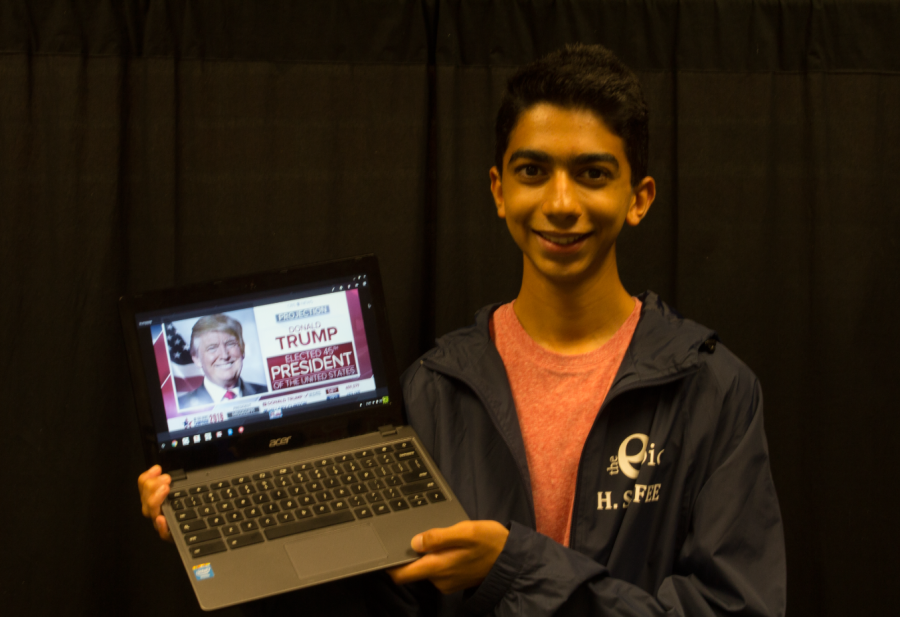TV shows undermine the gravity of politics
In My Opinion
September 28, 2017
Picture this: it’s 1 a.m. and you’re cuddling in your blanket with a bag of chips, watching “American Horror Story” on your laptop with the lights dimmed. Your eyes are glued to the screen, expecting a murderous mutant, when you see President Trump’s face and chuckle because of the recent comedic monologues by late night show hosts poking fun at him. Strange, right? Who would expect to see politics in “American Horror Story?”
In season seven of “American Horror Story: Cult,” which premiered on Sept. 5, director and writer Ryan Murphy uses politics as an example of how people’s vulnerabilities may be taken advantage of by power-hungry people. The first episode begins in a room where Kai Anderson, a loner on the alt-right, a group of conservatives in favor of white nationalism, watches the 2016 election results on TV and elatedly cheers, “USA! USA!” Meanwhile, elsewhere in the same town, the series’ protagonist, Ally Mayfair-Richards, a married lesbian, is having a breakdown while watching the election on CNN, because President Trump’s policies pose a threat to her marriage and lifestyle. According to Murphy, this extreme divide, exemplified by the characters, represents what instilled widespread fear and confusion in most Americans that night.
I’m not surprised that the writers of “American Horror Story” decided to base their series off of politics and President Trump; there are countless other TV programs that have been doing the same since campaigning for the 2016 election began — Stephen Colbert, Seth Meyers, Trevor Noah and Saturday Night Live, to name a few.
I’ve been watching “The Tonight Show Starring Jimmy Fallon” on TV every night, but ever since Colbert started performing his segments on recent events, mainly focusing on President Trump, it’s been hard to switch between both. Seth Meyers and Trevor Noah have also found their way into my nighttime binging, with Saturday Night Live being the leader of the pack. And I have to admit, like many people, I’m guilty of laughing uncontrollably during the Trump segments.
Such comical takes on President Trump and political news have been working for TV shows. According to a report by “TV By The Numbers,” Colbert’s “Late Show” overtook Fallon’s “Tonight Show” after the 2016 election and Trump’s first few months in office. Fallon’s show primarily includes celebrity guests while Colbert’s monologues focus mainly on Trump. Undoubtedly, people prefer tuning into something relatable and timely, and President Trump is clearly the perfect choice because of some people’s conception of him as not a politician but rather a rich businessman who was elected President by chance. Their disapproval of his controversial policies weighs in as another factor. My reaction to President Trump’s decisions, however, also made me realize that the general audience, like me, has started taking politics very light-heartedly. Comments such as those made by late night hosts make politics seem like a joke, especially with the laughter that chimes in with every announcement of a new Trump policy in the monologues of Colbert, Meyers and Noah.
Although TV shows and programs often talk about politics in a satirical manner, the ubiquity of these amusing takes on political events gives the wrong impression of politics to the general audience, who may start underestimating the significance of political decisions. Such programs should feature politics as a small segment in their show or series to update their audience about current events. However, they should not use political tropes as the basis for entire shows and deprive politics of its significance.
Behind the story: https://lhsepic.com/1829/opinion/behind-the-story-writing-a-column-about-trump/




























































